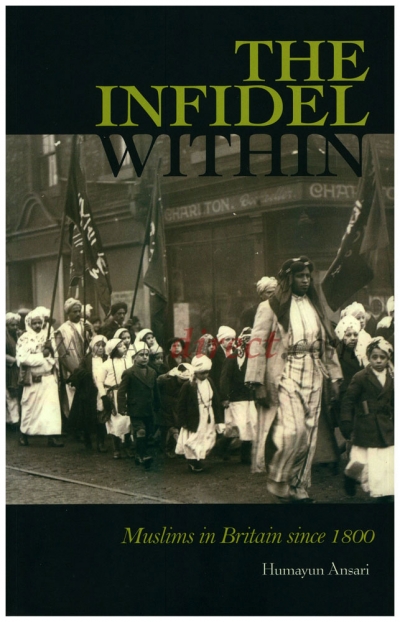



In order to deny providing citizenship rights to Muslims, the British government has started stripping British Muslims stranded on other countries of their citizenship altogether.
The British internal intelligence agency is openly spying on Muslims and forcibly recruiting Muslims to spy on fellow Muslims my blackmailing them.
The extradition of Babar Ahmad, Syed Talha Ahsan, Khalid al-Fawwaz, Adel Abdul Bary and Abu Hamza to the US to face terrorism charges while refusing to extradite white British citizen Gary McKinnon exposes British hypocrisy and injustice.
For years British Muslims have been pressured by the government, media, think tanks, and even some Muslim community leaders to renounce violence as a means of bringing about change for their communities, both in the UK and abroad...
Britain goes to the polls on May 6, to elect the government that is expected to run the country for the next five years. Unlike most elections in recent years, the contest is genuinely too close for the results to be predicted...
The “silly season” is an annual feature of British life: the period every summer when the country’s politicians depart the Westminster village for their holidays and the newspapers have to scrabble around for something else to write about in order to keep readers interested.
On August 24 the British government announced details of new measures to be taken against foreign Muslims living in Britain. Foreign Muslims will be deported from Britain, or not permitted to enter the country in the first place, if they are considered by the government to be “fostering hatred or fomenting, or glorifying terrorist violence”.
As soon as it became clear that the chaos on London’s public transport on the morning of July 7 was the result of something rather more than the usual maintenance problems, Muslims inBritain knew that they would come under immense pressure if it was confirmed that Muslims were responsible, as most observers immediately suspected.
The Infidel Within: Muslims in Britain since 1800 by Humayun Ansari. Pub: Hurst & Co. Ltd., London, 2004. Pages: 438. Pbk: £16.95.
British Muslims: Loyalty and Belonging edited by Mohammad Siddique Seddon, Dilwar Hussain and Nadeem Malik. Pub: The Islamic Foundation, Markfield, UK, and the Citizen Organization Foundation, London, UK, 2003. Pp: 116. Pbk: £4.95.
They were supposed to be the British government’s piece de resistance in its domestic war on terror: the smoking guns that confirmed the presence of al-Qa’ida cells in Britain. But a recent wave of police raids on homes, charities and, most spectacularly, a mosque in London have provoked accusations that the government is scapegoating the Muslim community in order to boost support for its involvement in the impending war against Iraq.
The International Prisoners of Faith conference organised by the Islamic Human Rights Commission attracted a larger crowd than expected in London on 17 February 2002. During the day-long event academics, ulama, Islamic activists and IHRC officers addressed attendees on aspects of imprisonment for one’s beliefs.
About 1500 people braved the cold and the hostile media to attend the Quds Day protests in London, UK, on Sunday 9 December. Traditionally held on the last Friday of Ramadan all over the world, the march broke with tradition in several ways this year.
Among the few notable results in Britain’s general election on June 8 was the strong showing of the British National Party (BNP) in the constituencies of Oldham East and Oldham West in Lancashire.
Britain’s long-expected general election will take place on June 7. British Muslim community groups, meanwhile, have already started campaigns against Islamophobic and pro-zionist MPs. At least three MPs representing the ruling Labour Party in London are in danger of losing their seats.
Once the American experience had provided a foretaste of how terrorism legislation can be misused, it was a foregone conclusion that once the Terrorism Act came into force on 19 February, Muslim organisations would fall like dominoes under its impact.
The Russian government claimed on February 20 that the London School of Economics was being used as a recruitment ground for “Chechen terrorists”.
Five British Muslims went on trial in Aden, Yemen, on January 26, accused of planning to bomb the city’s main hotel, the British consulate and a church.

